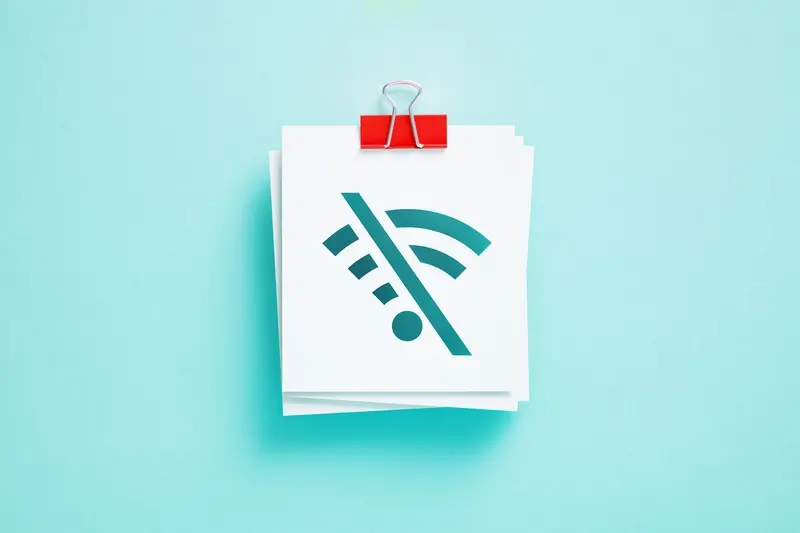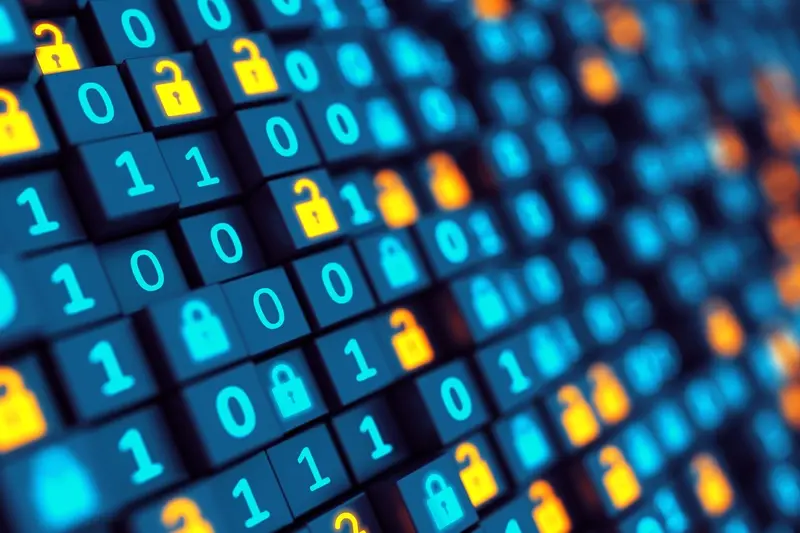Do I Need Cryptocurrency To Use Blockchain In My App?
Are you convinced that adding blockchain to your mobile app means you'll need to create your own digital currency or integrate Bitcoin payments? I've been building mobile apps for over eight years, and this is probably the most common misconception I encounter when clients start talking about blockchain technology. The short answer is no—you absolutely don't need cryptocurrency to use blockchain in your app.
This confusion makes perfect sense though. Most people first heard about blockchain through Bitcoin and other digital currencies, so it's natural to think they're inseparable. But blockchain is actually just a way of storing and sharing information that can't be changed once it's recorded. Think of cryptocurrency as just one possible use of blockchain technology, not the technology itself.
Blockchain without cryptocurrency is like having a secure filing cabinet without needing to pay rent in digital coins to access it
Throughout this guide, we'll explore exactly when your app might benefit from blockchain technology—and when it definitely doesn't need cryptocurrency. You'll discover real examples of successful blockchain apps that don't use any form of digital money, understand the myths that might be holding you back, and learn about private blockchain networks that could transform how your app handles data. By the end, you'll know exactly what your app actually needs and what it doesn't.
Understanding Blockchain Without Cryptocurrency
Right, let's clear something up straight away—blockchain and cryptocurrency are not the same thing. I know, I know, every time someone mentions blockchain, Bitcoin usually comes up in the next breath. But here's the thing: blockchain is just a way of storing information, and cryptocurrency is one application that uses it.
Think of blockchain as a special kind of database that's really good at keeping records safe and making sure nobody can cheat. Instead of storing information in one place (like most databases do), blockchain spreads copies across multiple computers. Each new piece of information gets added as a "block," and these blocks link together in a chain—hence the name.
What Makes Blockchain Special
The clever bit is that once information goes into a block, it's incredibly difficult to change or delete. Every computer in the network has to agree before anything gets added, and they all keep checking each other's work. This makes blockchain brilliant for things like tracking where products come from, storing medical records, or managing digital contracts.
Your mobile app could use blockchain to verify user achievements, track in-app purchases, or even manage user permissions—all without touching cryptocurrency. The blockchain simply acts as a trustworthy record keeper that nobody can tamper with.
What Makes Blockchain Work in Mobile Apps
Building blockchain into mobile apps isn't as complicated as most people think—but it does need three key things to work properly. First, your app needs a way to connect to the blockchain network, which is basically a secure internet connection that talks to other computers running the same blockchain. Second, you need something called a digital wallet built into your app so users can interact with the blockchain safely. Third, your app needs smart contracts, which are like automatic rules that run themselves when certain things happen.
The tricky bit is that mobile phones have limited battery life and processing power compared to desktop computers. This means your app can't do all the heavy blockchain work locally—it needs to connect to external servers that do the hard work instead. Your mobile app becomes more like a remote control that sends instructions to the blockchain network.
Keep blockchain interactions simple in mobile apps. Users shouldn't wait more than a few seconds for transactions to process, so design your app to handle blockchain operations in the background whenever possible.
Most successful blockchain mobile apps use something called API calls to communicate with the blockchain rather than trying to run a full blockchain node on the phone itself. This keeps things fast and doesn't drain the battery whilst still giving users all the benefits of blockchain technology.
Common Myths About Blockchain and Digital Money
Let me clear up some confusion that I see every single day when talking to clients about blockchain. The biggest myth? That you absolutely must have cryptocurrency to use blockchain technology. This simply isn't true—blockchain is like a digital ledger that can work perfectly well without any coins or tokens involved.
Another common misconception is that blockchain is only for financial apps. I've worked on blockchain projects for supply chain tracking, medical records, and even gaming apps that had nothing to do with money. The technology is much more flexible than people think.
The "Too Complicated" Myth
Many people believe blockchain is too complex for regular mobile apps. While the underlying technology is sophisticated, using it in your app doesn't have to be complicated at all. Modern blockchain tools and platforms make integration quite straightforward—you don't need to build everything from scratch.
The Security Misconception
Some folks think blockchain automatically makes everything completely secure. That's not quite right either. Blockchain provides certain security benefits like tamper-proof records, but your app still needs proper security measures in other areas. It's one tool in your security toolkit, not a magic solution that fixes everything.
The truth is that blockchain can be incredibly useful for mobile apps without any cryptocurrency involvement whatsoever.
Private Blockchain Networks for App Development
Private blockchain networks are like having your own secure digital filing system that only your team can access. Unlike public blockchains where anyone can join and see transactions, private networks keep everything behind closed doors. This makes them perfect for mobile apps that need blockchain's benefits without exposing sensitive data to the world.
When you build your mobile app with a private blockchain, you control who gets in and what they can do. Banks use these networks for internal transfers, hospitals for patient records, and supply chain companies for tracking products. The best part? No cryptocurrency requirements whatsoever. You get all the security, transparency, and unchangeable record-keeping without needing digital coins.
Private blockchains give you blockchain's superpowers without the complexity of managing cryptocurrency wallets or token economics
Setting Up Your Private Network
Creating a private blockchain for your app involves choosing the right platform—Hyperledger Fabric and R3 Corda are popular choices. You'll need to decide who can validate transactions (usually your trusted partners or internal systems) and what permissions different users should have. The whole setup focuses on your business needs rather than cryptocurrency mechanics.
Cost and Maintenance Benefits
Private networks often cost less to run than public blockchain solutions because you're not paying transaction fees or competing for network space. You control the infrastructure, which means predictable costs and faster transaction speeds. Perfect for apps that need blockchain reliability without cryptocurrency complications.
When Your App Actually Needs Cryptocurrency
Right, let's be honest here—most apps don't need cryptocurrency at all. But there are some genuine cases where your app would benefit from having its own digital currency or using an existing one like Bitcoin or Ethereum.
The main reason to add cryptocurrency is when you're building something that involves transferring value between users who don't know each other. Think about it: if strangers need to pay each other through your app, traditional payment methods can be slow, expensive, or simply not available in certain countries.
Clear Signs Your App Needs Cryptocurrency
Here are the situations where cryptocurrency actually makes sense:
- Your app connects freelancers with clients across different countries
- Users need to make micropayments (tiny amounts like 5p) frequently
- You're building a marketplace where trust between strangers is limited
- Your app operates in regions with unstable banking systems
- Users want to remain anonymous whilst making transactions
Gaming apps sometimes use cryptocurrency too, especially when players trade virtual items with real-world value. But remember—adding cryptocurrency means dealing with regulations, security concerns, and a steeper learning curve for your users. Make sure the benefits genuinely outweigh these challenges before you commit.
Real Examples of Blockchain Apps Without Tokens
Let me show you some brilliant mobile apps that use blockchain technology without requiring any cryptocurrency or tokens. These real-world examples prove you can harness blockchain's power whilst keeping things simple for your users.
Supply Chain and Food Safety Apps
Walmart uses blockchain in their mobile app to track food from farm to shelf. When you scan a product, you can see its complete journey—where it was grown, when it was harvested, and how it travelled to your local store. No cryptocurrency needed, just transparency. This helps them quickly identify contaminated food sources and remove them from shelves within seconds rather than days.
Similar apps exist for tracking diamonds, ensuring they're conflict-free, and verifying luxury goods aren't counterfeit. Each item gets a digital fingerprint stored on the blockchain that can't be faked.
Document Verification Apps
Educational institutions now use blockchain-powered mobile apps to issue and verify certificates. Students can share their qualifications digitally, and employers can instantly confirm they're genuine. The blockchain stores a permanent record that can't be altered or forged.
- Medical record verification apps for doctors and patients
- Property deed verification for estate agents
- Academic transcript verification for universities
- Professional certification apps for various industries
Start small with blockchain features. You don't need to rebuild your entire app—add blockchain verification to one key feature first, like user authentication or document storage.
These apps focus on solving real problems with blockchain's core strengths: transparency, security, and permanent records. No digital wallets, no token purchases, no complicated cryptocurrency requirements.
Conclusion
So there you have it—blockchain doesn't need cryptocurrency to work in your mobile app. I know this might feel like we've shattered some preconceptions along the way, but that's exactly what needed to happen. Too many app developers get caught up thinking they need tokens or digital coins when what they really need is just the secure, transparent technology that sits underneath.
The truth is, private blockchain networks can give you all the benefits—the security, the transparency, the immutable records—without any of the complexity that comes with handling digital money. Your users don't need to understand cryptocurrency wallets or worry about token prices; they just get a better, more secure app experience.
Before you make any decisions about blockchain in your app, go back to that fundamental question: what problem are you actually trying to solve? If it's about trust, verification, or creating tamper-proof records, blockchain could be brilliant. If you're just adding it because it sounds trendy, you're probably wasting time and money.
The examples we've looked at—from supply chain tracking to digital identity verification—show that some of the most successful blockchain implementations are the ones users barely notice. That's good design. That's smart development. And that's exactly how it should be.
Share this
Subscribe To Our Learning Centre
You May Also Like
These Related Guides

Do Blockchain Apps Work Without Internet Connection?

Is Blockchain Technology Too Slow For Mobile Apps?



